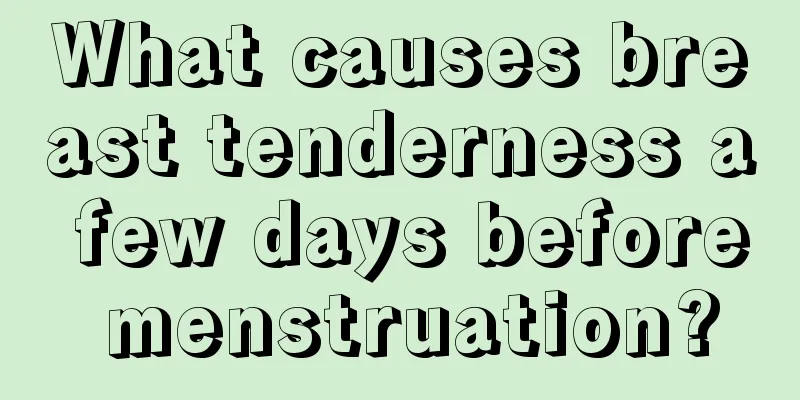What are the consequences of poor follicular development?

|
Generally, there are many reasons that lead to poor follicular development, the most common ones include polycystic ovary, abnormal estrogen and progesterone levels, low follicle-stimulating hormone levels, etc. Western medicine calls it poor follicular development, failure to ovulate normally or poor quality of the eggs discharged, which will affect normal conception and fertility. However, poor follicular development will also affect other aspects, so it is necessary to pay attention to it and adjust it as soon as possible to get better faster. 1. Premature ovarian failure Poor follicular development in some women is caused by premature ovarian failure. The patient has normal menstruation in the early stage and even has a history of childbearing, but then the menstruation becomes infrequent until complete amenorrhea. The follicles in the ovaries of such patients have been exhausted, and it is impossible to use ovulation-stimulating drugs to make the follicles develop, or although there are primordial follicles, they do not respond to gonadotropins. 2. Polycystic ovary syndrome Polycystic ovary is one of the reasons for poor follicular development. Polycystic ovary syndrome is the most common reason why women do not ovulate. The characteristics of its ovaries are that the ovaries are enlarged in size and have multiple small follicles, but they cannot develop to maturity. Therefore, drugs are needed to promote follicle development. 3. Pituitary problems One of the reasons for poor ovarian development and common diseases that lead to abnormal ovulation include pituitary prolactinoma, hyperprolactinemia, and Sheehan syndrome. High prolactin levels can inhibit ovulation. 4. Hypothalamic anovulation Primary organic factors, primary functional factors, secondary organic lesions, and secondary functional factors. 5. Ovulation disorders caused by abnormal function of the thyroid and adrenal cortex. Polycystic ovary syndrome in women is also one of the reasons for poor follicle development. Polycystic ovary syndrome is the most common reason why women do not ovulate. The characteristics of its ovaries are that the ovaries are enlarged in size and have multiple small follicles, but they cannot develop to maturity. Therefore, drugs are needed to promote follicle development. I believe that now you already know that poor follicular development can cause great harm to women's bodies, so you must get checked in time in the future so that you can understand your physical condition more quickly. And only after you regulate your body can you have a healthy and lively baby. I hope that the editor's introduction can be helpful to you, and I wish you a speedy recovery. |
<<: What foods are good for cervical cysts?
>>: When is the follicular development phase?
Recommend
Feeling of lower abdominal pain and heaviness
Everyone says that women are what they say and do...
Are you happy after quitting smoking? Using my own experience, I will tell you the truth about smoking
This question is a bit complicated. Whether you a...
Is it better to grow lucky bamboo in pairs or in singles? How to choose the location of lucky bamboo?
Lucky bamboo is very common in our daily life. Be...
Is it normal to have periods at 10 years old?
The sign of every woman's maturity is menstru...
What causes pregnancy weight loss?
Generally speaking, a woman's weight will inc...
What is pregnancy hypertension
Many people do not fully understand what may happ...
How often should a humidifier be cleaned? How to clean scale from a humidifier?
A humidifier is an electrical appliance that incr...
What is the relationship between menopause and estrogen?
As we all know, the ovaries are female gonadal or...
How to induce abortion of ectopic pregnancy?
Induced abortion is a method often adopted by wom...
Could redness at the urethral opening be an inflammation of the epidermis?
Redness of the urethral opening is most likely to...
Will vaginal relaxation recover after childbirth?
When pregnant women give birth, they usually perf...
Can I eat Atractylodes macrocephala during menstruation?
Most female friends become very sensitive during ...
How to dress for slightly plump girls, do these things and you will be slimmer
For many girls who are a bit fat, they often worr...
What are the criteria for evaluating high-quality ground-based APP task-taking platforms in 2023?
When it comes to high-quality ground-promotion AP...









